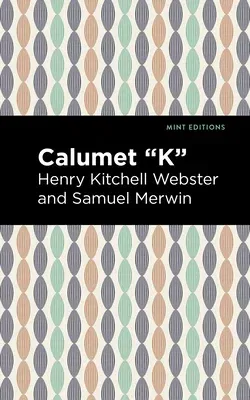Calumet "K" (1904) is a novel by Henry Kitchell Webster and Samuel
Merwin. Written as a collaborative effort between the two natives of
Evanston, Illinois, Calumet "K" is a story of invention, struggle, and
personal redemption. A favorite novel of writer and philosopher Ayn
Rand, Calumet "K" launched the careers of two of the Midwest's most
popular authors of the early twentieth century. The contract for the two
million bushel grain elevator, Calumet K, had been let to MacBride &
Company, of Minneapolis, in January, but the superstructure was not
begun until late in May, and at the end of October it was still far from
completion. Ill luck had attended Peterson, the constructor, especially
since August. MacBride, the head of the firm, disliked unlucky men, and
at the end of three months his patience gave out, and he telegraphed
Charlie Bannon..." Predating Ayn Rand's bestselling novels of
individualism and invention by several decades, Calumet "K" is a story
of man and machine, of the determination and manpower required for every
advancement in human history. In the grand scheme of things, the
construction of a massive grain elevator in a little-known Midwestern
town might seem minor, but the drama that ensues from Charlie Bannon's
arrival is a story with much larger implications. As he struggles to
succeed through willpower and grit, Bannon goes up against nature, big
business, and political unrest in order to achieve his goal. As the
grain elevator rises with unprecedented speed, as the day of the
contract's fulfillment grows near, Bannon and his allies find themselves
pushed to the brink. With a beautifully designed cover and
professionally typeset manuscript, this edition of Samuel Merwin and
Henry Kitchell Webster's Calumet "K" is a classic of American
literature reimagined for modern readers.


